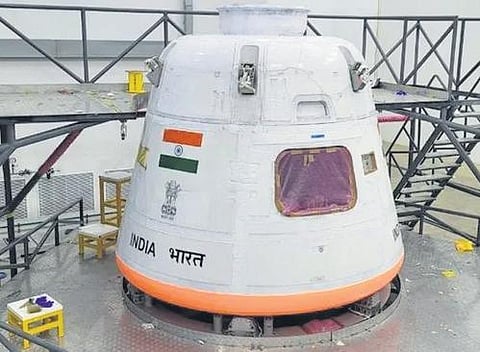

BENGALURU: Victor Joseph, associate scientific secretary, Indian Space Research Organisation (ISRO), said on Friday that vehicle tests and uncrewed missions with the launch vehicle for Gaganyaan 2025 are on and will be completed by next year.
The mission aims to send human crew to an orbit of 400km and bring them back safely to the Earth, he said.
Joseph said India has plans to have a man on the Moon by 2040, which will be a stepping stone in Indian space history. This will also see a huge investment from private companies in the space sector.
Reiterating Prime Minister Narendra Modi’s statement, Joseph said the country has set ambitious goals to establish its own space station, ‘Bhartiya Antariksha Station’, by 2035. Work is on to achieve these goals, he added.
Joseph was speaking at Bengaluru Tech Summit (BTS-2023) on the topic, “From the Moon to the Sun - The Dawn of the Indian Story”, along with Sreeram Ananthasayanam, partner, Deloitte, Dr Vinod Kumar, director, promotion, IN-SPACe, Vinod Chippalkatti, president, Centum, and N Sudheer Kumar, director, Isro.
Joseph also spoke about the “growing India’s share in global space economy from 2% in 2023 to 15% by 2047 ($1,500 billion).” He introduced the decadal target for the sector and aims for the industry to progress by 8% by 2023.
Ananthasayanam highlighted the needs of the industry and said ‘The Space Act’ will affirm policy regulations and incentives which will give a clear picture and roles for different entities, including clarity on the Foreign Direct Investment (FDI) policy.
‘Space data should be democratised’
“Startups have been open and unanimous about asking for assembly, integration and testing facilities and some grants for the capital demand,” he said. He said space data should be democratised to boost investor confidence. That needs the commitment from the government for procurement and usage of space-based services and building a long-term demand for products. One of the major points he highlighted was the requirement to standardise a methodology to define and measure the space economy. “Every time a startup asks for funding, multiple numbers are being put up. There is no concrete source for data. We need to have a socio-economic assessment done in specific domains,” Ananthasayanam said.